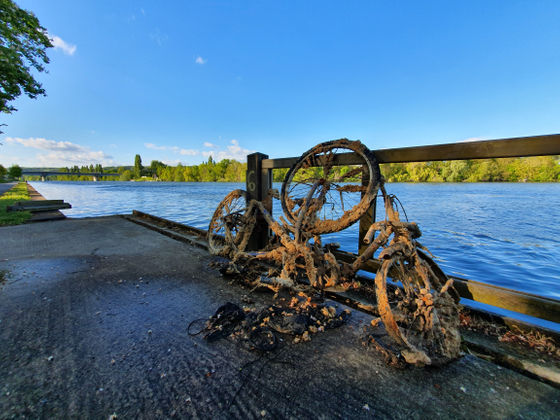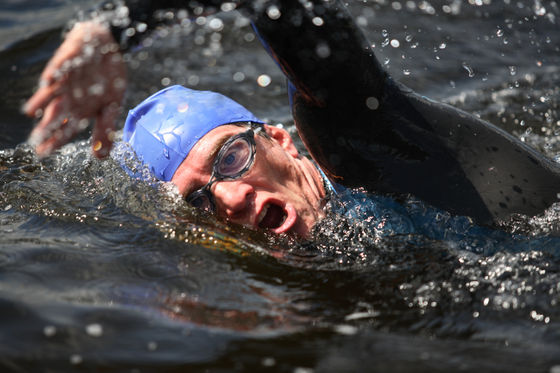Can the Paris Olympics swimming events be held safely in the Seine amid concerns about 'fecal contamination'?

At the 2024 Paris Olympics in France, public practice sessions for the triathlon have been canceled and the event
Paris 2024 Olympics: is open-water swimming in the Seine safe?
https://theconversation.com/paris-2024-olympics-is-open-water-swimming-in-the-seine-safe-215628
Current state of the Seine River
According to Jamie Wilkes and Lois Mougin, researchers in sport and environmental studies at Loughborough University in the UK, outdoor swimming events in the Seine, where swimming has been banned since 1923, were in jeopardy at one point due to issues with water safety standards.
The problem is that the Seine has a small water volume compared to the population of 12.3 million in the greater Paris area, and pollutants cannot be diluted sufficiently. Rain that falls in the area flows over roads and fields before entering the sewer system, where it becomes contaminated with oil, heavy metals, animal waste and pesticides.

This sewage flow, mixed with untreated wastewater from homes and businesses, overwhelms the treatment plants’ capacity. To prevent backflow, untreated sewage is then dumped into the Seine through 200 drains. This problem is commonly known as “
When this happens, the river becomes muddy, loses dissolved oxygen, and increases the concentration of E. coli. During heavy rainstorms, Wilkes and his team found, levels of E. coli and Enterococcus bacteria (a common bacterium found in the intestines of humans and animals) in the Seine can reach levels nearly 100 times higher than in drier periods.
River water quality is at risk of further deterioration due to climate change, with short, intense downpours expected to become more frequent during the summer, especially in June and July.
◆What measures are the authorities taking and how effective are they?
Local authorities have undertaken various initiatives to improve the Seine's water quality, and 1.4 billion euros have been invested in city plans since France was awarded the Olympic Games in 2016. Divide that by the number of outdoor swimming and triathlon athletes at the Olympic and Paralympic Games and you get 5.2 million euros per person.
The funds were primarily used to refurbish the Marne Aval and Seine Valenton wastewater treatment plants, which are estimated to have reduced the annual amount of untreated sewage flowing into the Seine from 90 million cubic metres in 2003 to 15 million cubic metres in 2018.

by
The city also built the Austerlitz Basin beneath Paris to store sewage and reduce the load on the sewer system, and provided 6,000 euros in grants to upgrade drainage systems for 20,000 Parisian homes that dump their sewage directly into the Seine. It also required all ships moored on the Seine to connect to the sewer system and stop dumping raw sewage into it.
Despite these efforts, during a pre-Olympic test event in 2023, heavy rains on July 28 caused E. coli levels to spike and fecal matter concentrations to exceed safe limits, forcing the cancellation of the open water swimming World Cup, which was scheduled to take place in August and May.
Impact on athletes' health
A 2019 study found that outdoor swimmers who swim in polluted waters can suffer from gastrointestinal disorders, eye and skin infections, and respiratory illnesses, especially if their immune systems are suppressed during intense competition or training.
These risks can be reduced by minimizing exposure to contaminated water, but complete prevention is difficult in high-level competitions such as the Olympics. In fact, a 1997 survey found that 75% of triathletes had swallowed water.

Athletes competing in the Olympics are fully aware of these risks before deciding to participate. For example, Tobias Patrick Robinson and Hector Pardo, who will represent Great Britain in the marathon swimming competition at the 2024 Paris Olympics, have both stated that they will 'swim no matter what the risks are.'
'Extreme weather events threaten the water quality of the Seine and our ability to safely host the Olympic Games. Athletes, organizers and team managers must work together to limit health risks, preserve the integrity of the Olympic Games and avoid any unpleasant experiences for competitors,' Wilkes and his team wrote in their conclusion.
Related Posts:
in Note, Posted by log1l_ks







